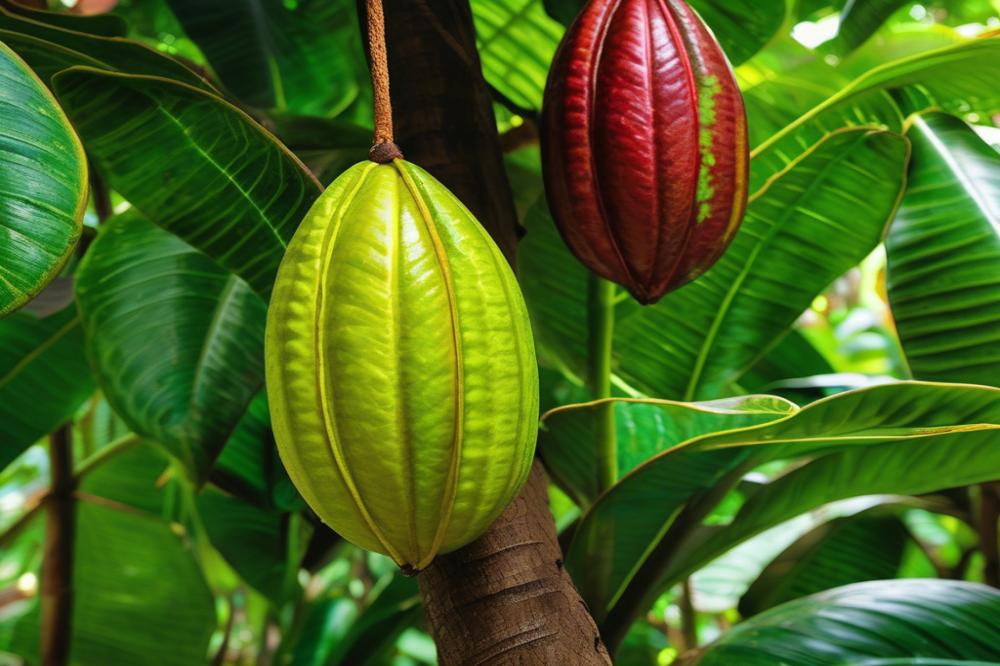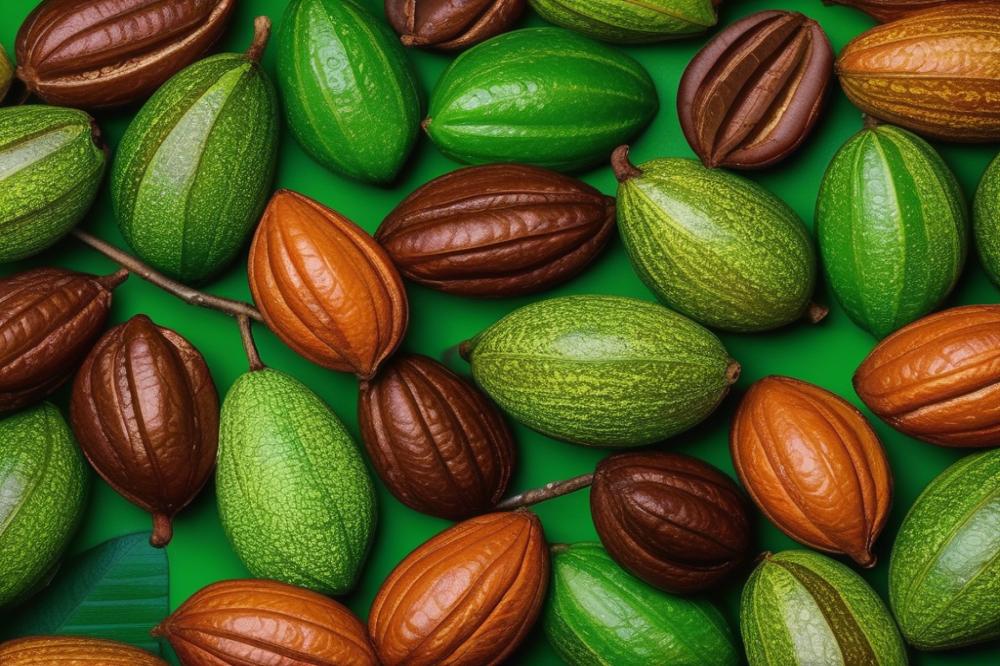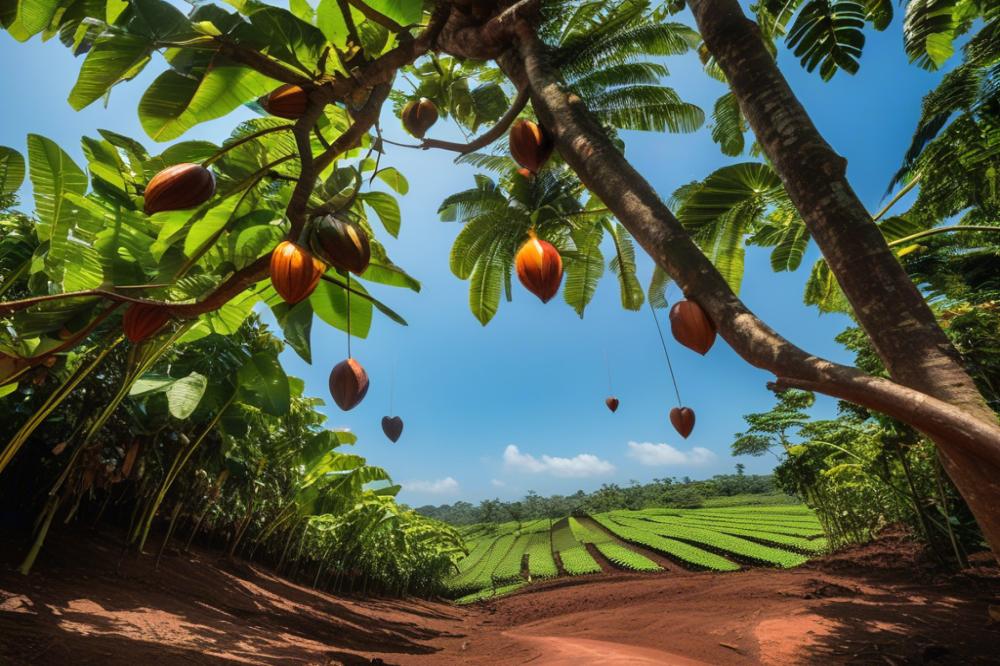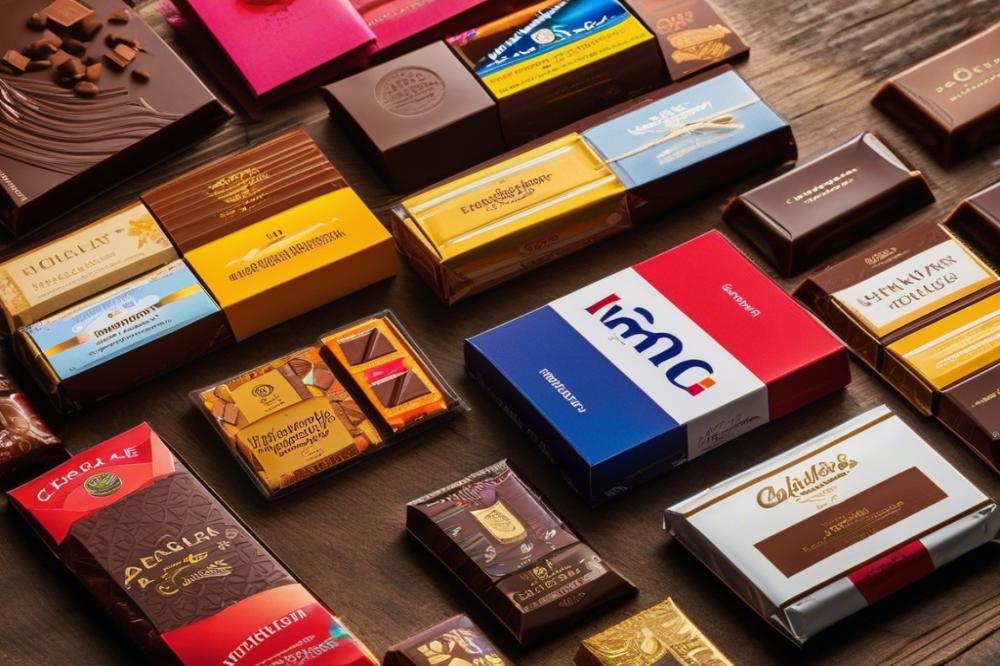Overview of Côte d’Ivoire’s Significance in the Global chocolate industry
Côte d’Ivoire, more commonly known as Ivory Coast, plays a pivotal role in chocolate production worldwide. As one of the largest producers of cacao beans, the country fuels a significant portion of the global chocolate industry. Farmers in the region contribute to the supply chain that fills countless chocolate bars and gourmet treats around the globe. With increasing demand for high-quality ingredients, Côte d’Ivoire is stepping into the spotlight.
The rise of awareness around ethical sourcing is reshaping the way chocolate is made. Consumers are more conscious than ever about where their food comes from. Fair trade practices are becoming pivotal in cacao farming. These practices help improve the lives of farmers and their communities. Expectations for sustainability are growing, which is encouraging many producers to adopt more responsible methods. As interest in sustainable cocoa increases, the pressure to do right by the environment and communities intensifies.
Emergence in gourmet markets showcases how Côte d’Ivoire chocolate is gaining attention. Artisan chocolate makers are experimenting with distinctive flavors sourced from this region. Chefs and food enthusiasts are eager to explore chocolates that tell a story through their ingredients. Culinary trends are shifting towards appreciating the origins of cacao. This not only raises the bar for quality but also highlights the connection between farmers and consumers. The once-overlooked chocolates from Ivory Coast are now turning heads in high-end shops and restaurants. A new era in chocolate is flourishing, and Côte d’Ivoire is at the heart of it.
Côte d’Ivoire chocolate: The Heart of the Chocolate Industry

The history of cacao production in Ivory Coast is rich and deep. Cacao farming began in the late 19th century. Since then, it has become a cornerstone of the country’s economy. Farmers in this region initially grew cacao in small quantities. However, by the 1970s, production began to expand rapidly. Today, Ivory Coast ranks as the world’s largest producer of cacao beans. This status plays a significant role in the chocolate industry.
Côte d’Ivoire’s importance extends beyond its borders. The country feeds the global market with a significant portion of its cacao. Over 40% of the world’s supply comes from this West African nation. As a result, many chocolate brands rely on Ivorian beans for their products. This situation highlights the interconnectedness of cacao growers and chocolatiers worldwide. Gourmet chocolate makers especially seek high-quality cacao from this region.
The impact of cacao farming on the local economy is profound. Many families in rural areas depend on cacao for their livelihood. Cacao farming creates jobs, stimulates local businesses, and supports community development. Fair trade practices also help ensure that farmers receive fair compensation for their work. This ethical sourcing movement aims to uplift farmers and improve their living conditions. Artisan chocolate producers are now looking to Ivory Coast for high-quality beans to create unique flavors. These culinary trends are transforming the perception of chocolate globally.
Additionally, the rise of artisanal chocolate has created new opportunities. Consumers are increasingly curious about where their chocolate comes from. Awareness of sustainable practices is growing, prompting a shift towards ethically sourced options. This change benefits both the environment and local economies. As cacao farmers adapt to these trends, they play a vital role in shaping the future of the chocolate industry.
Emergence of Artisan Chocolate Producers

In the past few years, small-scale, artisan chocolate brands have taken root in Ivory Coast. These new companies are changing the way people think about chocolate. By focusing on quality over quantity, they are gaining attention in the chocolate industry. These artisan producers often work directly with local farmers. They prioritize fair trade practices, which helps ensure that the cacao farmers receive a fair price for their hard work.
Many artisans use traditional methods that have been passed down through generations. They often craft their products in small batches, allowing for greater attention to detail. This process helps highlight the rich flavors found in premium cacao. Artisan chocolate makers are also experimenting with new tastes. Innovative flavor profiles appeal to adventurous consumers looking for something more than just ordinary chocolate.
Several notable artisans are leading the charge in the chocolate revolution of Côte d’Ivoire. Names like Amina Kouassi and her brand “Cacao Creations” stand out for their commitment to sustainable practices. Amina uses beans sourced from her family-owned farm, promoting ethical sourcing and environmental responsibility. Meanwhile, Djembe Chocolates, founded by Paul Kone, offers gourmet chocolate bars infused with local fruits and spices. Such creativity showcases the culinary trends that highlight the region’s diverse agricultural bounty.
As more consumers become aware of where their food comes from, growing interest in artisan chocolate is evident. Social media is helping these brands reach a global market. Unique stories about the producers and their chocolate production methods attract customers who value transparency. In this way, artisan chocolate not only delights taste buds but also supports local economies.
Overall, the rise of artisan chocolate makers in Ivory Coast is more than a trend. It represents a shift toward more conscious consumption. As these producers continue to thrive, they redefine what it means to enjoy chocolate in an ethical and flavorful way.
Fair Trade and Ethical Sourcing in Chocolate Production
The importance of fair trade practices in the cacao sector cannot be overstated. Many farmers in Ivory Coast struggle to make a living from their harvests. With fair trade, producers receive better prices for their cacao beans. This practice helps them support their families and invest in their communities. By prioritizing equitable trade, the chocolate industry can uplift vulnerable farmers.
In recent years, Côte d’Ivoire has started adopting various ethical sourcing strategies. Local cooperatives are now focusing more on sustainable farming methods. These initiatives not only help protect the environment but also lead to higher-quality cacao. Innovative programs are emerging that train farmers in organic cultivation techniques. Such methods enhance the value of their crops and appeal to conscious consumers.
The benefits for farmers and the global market are significant. When producers gain access to fair trade certifications, they can market their cacao better. Many consumers today seek artisan chocolate and gourmet chocolate options. They want products that reflect social responsibility. Improved income leads to better education and healthcare for farming communities, creating a positive cycle.
Furthermore, ethical sourcing is becoming a vital part of culinary trends. Chefs and food enthusiasts increasingly prioritize transparency in their ingredients. They want to know where their food comes from and the people behind it. As awareness grows, the demand for ethically sourced products increases. This shift helps integrate social standards into the chocolate production process.
Ultimately, the rise of ethical cacao farming in Ivory Coast highlights a broader movement. It demonstrates how the global market can support sustainable practices. With more producers committing to fair trade, the future of cacao farming looks promising. Together, consumers, farmers, and producers can create a thriving chocolate landscape that honors both people and the planet.
Culinary Trends Influencing Gourmet Chocolate
Culinary trends have a significant impact on chocolate consumption today. People want more than just sweetness; they seek flavors that tell a story. Dark chocolate, with its rich and bold taste, captures attention across many age groups. Flavors such as sea salt, chili, and even floral notes are gaining popularity. Consumers are adventurous, eager to explore new taste experiences.
The chocolate industry in Ivory Coast has adapted swiftly to these changes. With a reputation built on quality, local producers are crafting artisan chocolate that speaks to diverse tastes. Ethical sourcing is also a priority, as many buyers want to support fair trade practices. This connection to sustainable cacao farming is attractive not just for ethics but also for flavor. The result is chocolate that not only tastes good but feels good to eat.
International brands are recognizing the potential of Côte d’Ivoire. Several have partnered with local farmers to create limited-edition treats. These collaborations often introduce exclusive products that highlight the distinct characteristics of Ivorian cacao. For example, some brands have launched gourmet chocolate bars infused with local spices. The blend of traditional flavors and modern techniques captivates consumers worldwide.
Moreover, the rise of social media has further elevated this chocolate experience. Influencers taste and share their thoughts on these decadent creations, expanding their reach. Shoppers are more informed than ever about where their food comes from. This awareness has led to an increased demand for chocolate that aligns with values like sustainability and quality. Thus, Côte d’Ivoire’s chocolate producers are not just meeting market demands; they are also shaping new culinary trends.
Challenges and Opportunities in Côte d’Ivoire’s Chocolate Industry
The chocolate industry in the Ivory Coast faces several serious challenges. Cacao farmers often struggle with low prices for their beans. Many do not receive fair compensation for their hard work. This situation can lead to poverty and a lack of investment in farming practices. Additionally, some farmers battle climate change. Unpredictable weather can harm cacao crops and disrupt the livelihoods of many families.
Despite these issues, there are golden opportunities for growth in the global market. Demand for chocolate continues to rise around the world. Consumers increasingly seek high-quality products, including gourmet chocolate. This trend opens doors for Ivory Coast cacao to be featured in artisan chocolate creations. By emphasizing quality and ethical sourcing, local producers can attract higher prices.
Innovation plays a vital role in the future development of Côte d’Ivoire’s chocolate production. New farming techniques can help improve crop yields and minimize the impact of climate change. Moreover, businesses can expand their reach by integrating technology into supply chains. Transparency in sourcing and fair trade practices can build trust with consumers. As culinary trends evolve, the focus on sustainable and ethical chocolate could provide a unique market position for Côte d’Ivoire.
Farmers cooperating in cooperatives can strengthen their voices. This teamwork ensures that they have a say in their futures and the industry as a whole. By sharing resources, they can access training and information. Such collaboration creates an environment where innovation can flourish, and communities can thrive.
Final Thoughts on Côte d’Ivoire’s Chocolate Journey
This West African nation has emerged as a significant player in the chocolate industry. Over recent years, Côte d’Ivoire has gained recognition for its exceptional cocoa beans. Farmers are increasingly adopting sustainable practices, enhancing the quality of their products. As a result, consumers are starting to take notice of the rich flavors and unique characteristics offered by chocolate sourced from this region.
People around the world are finding a newfound appreciation for the exquisite taste and high quality of Ivorian chocolate. The potential for Côte d’Ivoire to capture global hearts is immense. Buyers are now seeking chocolates that not only satisfy their taste buds but also tell a compelling story of ethical production and artisan craftsmanship. Support for these initiatives can create a ripple effect, benefiting both local farmers and the environment.
It is crucial for consumers to make informed choices when purchasing chocolate. By opting for ethically sourced products, they can support small producers who are dedicated to fair trade practices. This choice helps ensure that farmers in Ivory Coast receive fair compensation for their hard work. Additionally, supporting artisan chocolate makers promotes creativity and innovation in the chocolate market.
Embracing Côte d’Ivoire’s chocolate means investing in a more sustainable future for all involved. The more attention paid to these delicious products, the more we can inspire meaningful change in the industry. Let’s celebrate this rising star and encourage practices that uplift communities and enhance quality. Together, we can help Côte d’Ivoire’s chocolate shine on the global stage.



